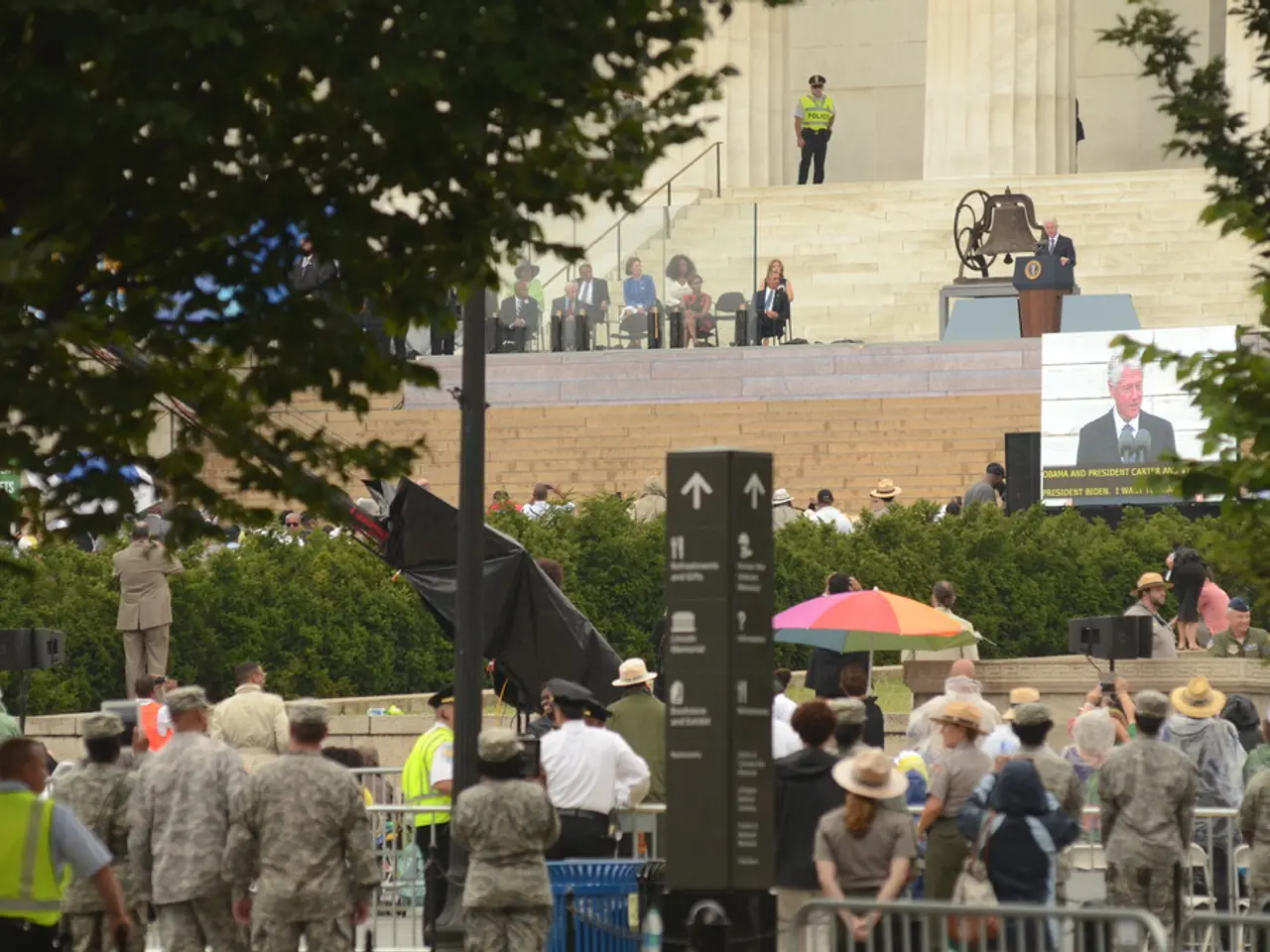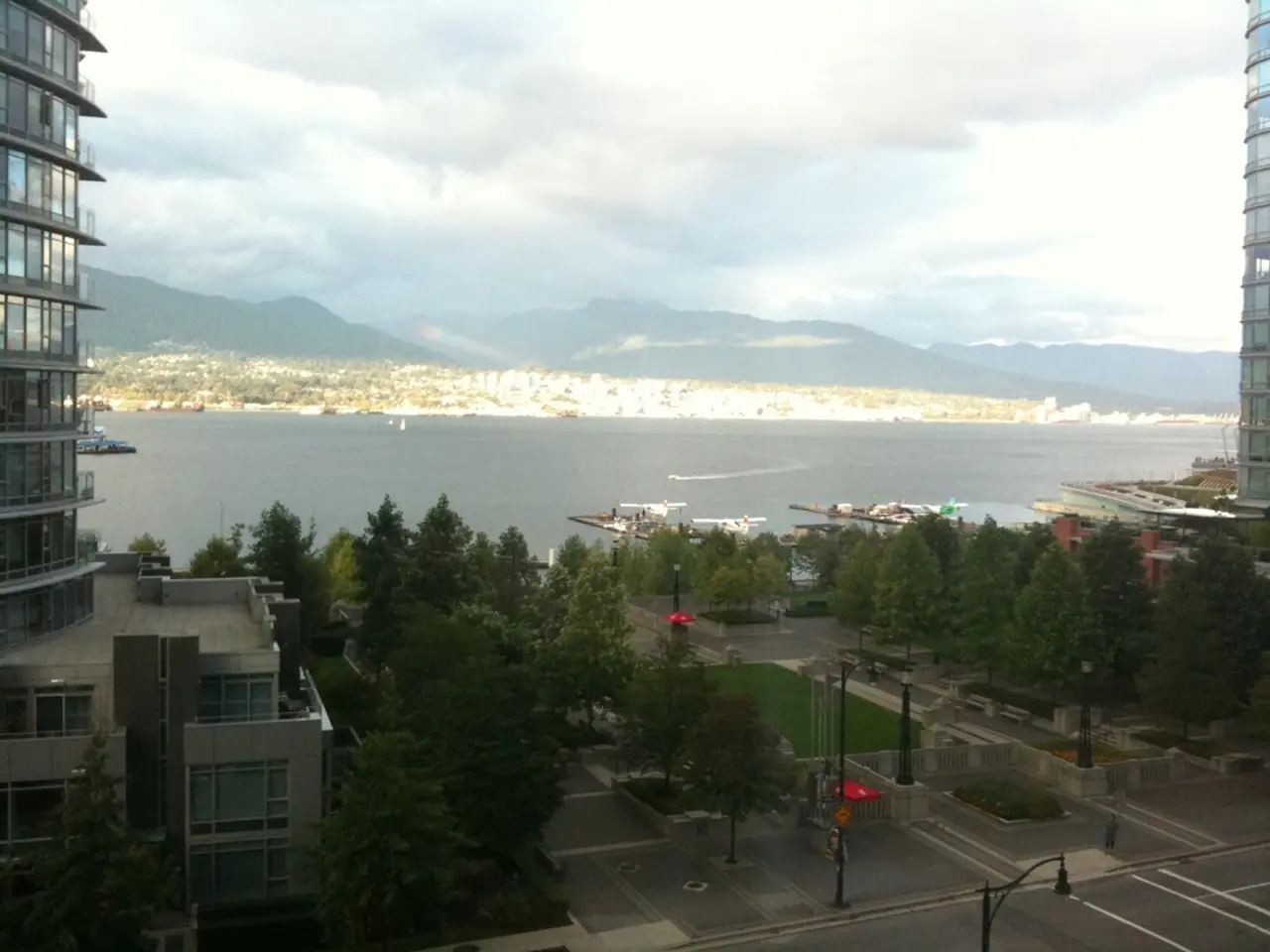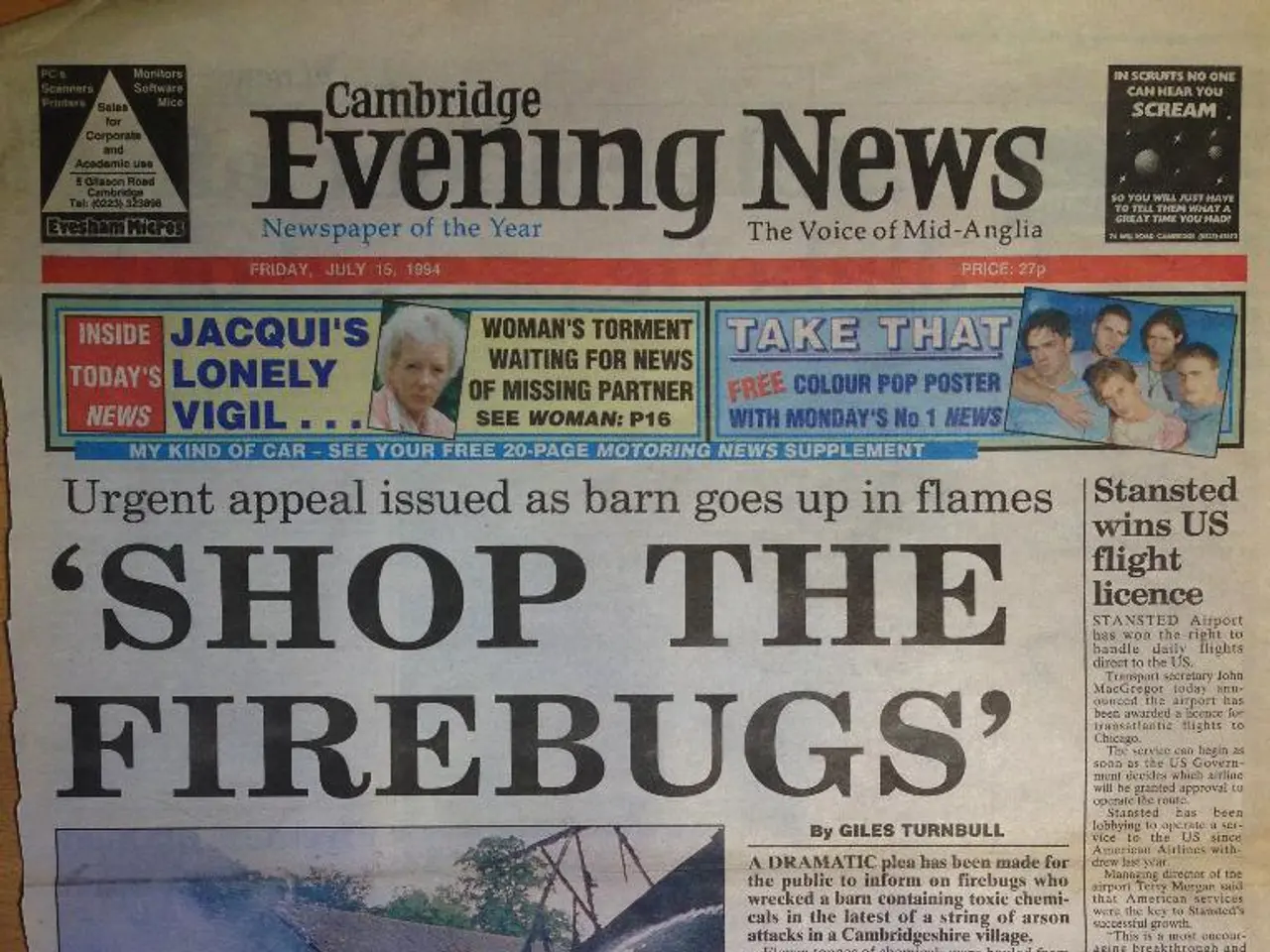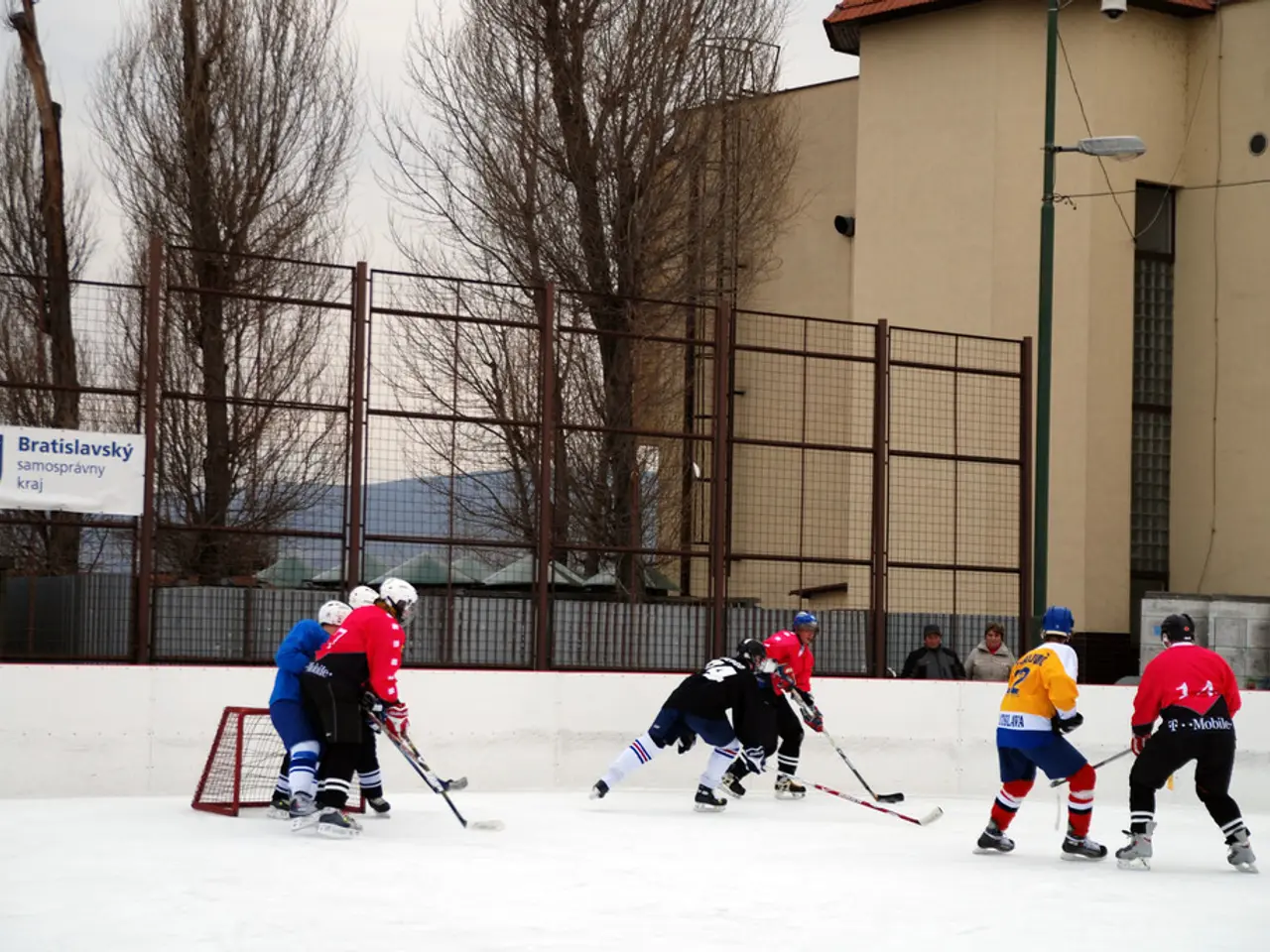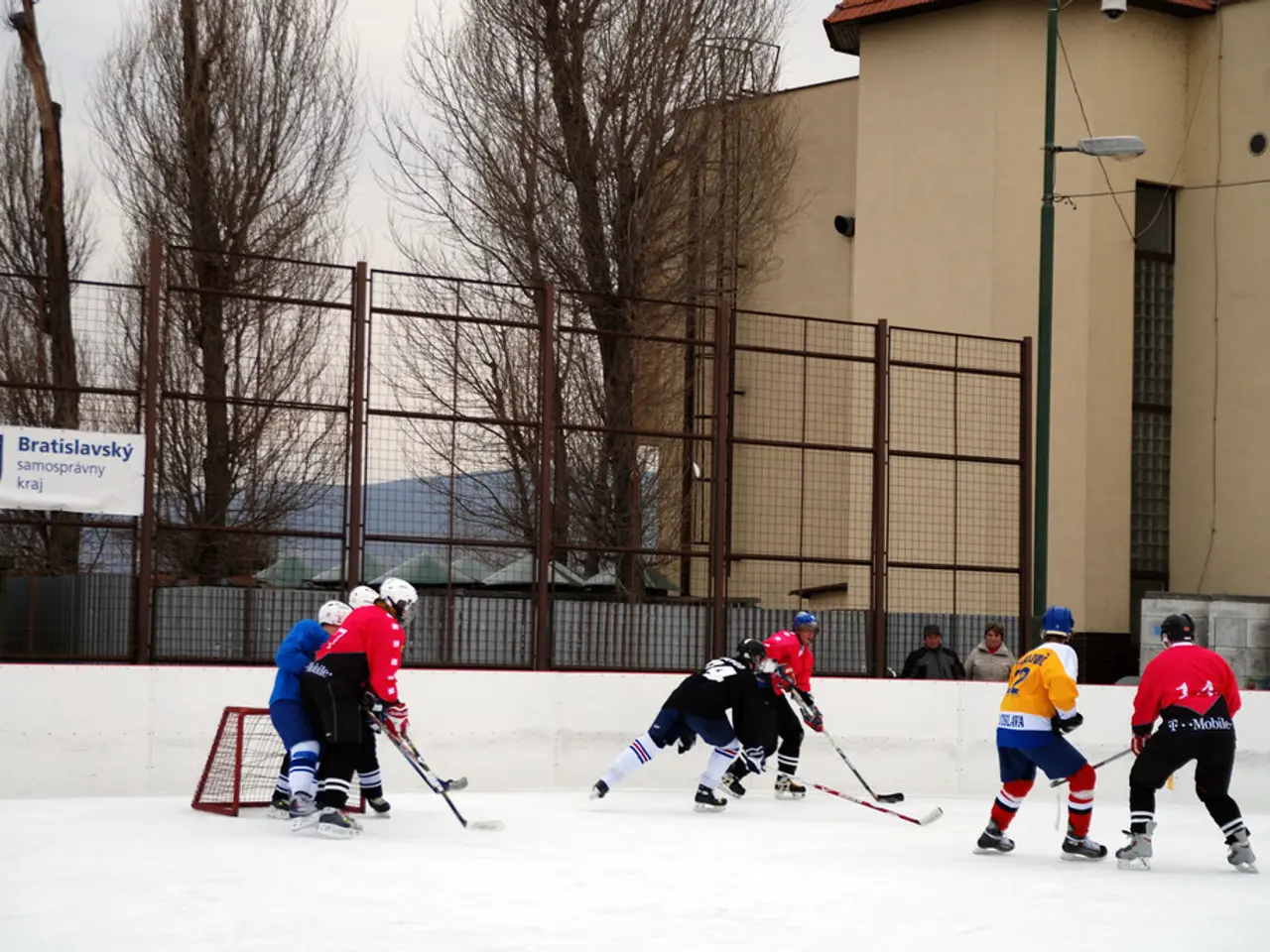Gathering of Vance and Lammy in a fishing event held in southern England. - Vance and Lammy hold discussions in the south of England
In a significant development, the current U.S. position supports the recognition of a Palestinian state, but with conditions. Secretary of State Antony Blinken has emphasized that such recognition should be strategically timed, prioritizing the resolution of ongoing issues such as hostage release and ending the war in Gaza.
This stance is not unique to the U.S. Globally, there is growing diplomatic momentum for recognizing Palestinian statehood. Countries like Australia have announced plans to formally recognize Palestine at the upcoming UN General Assembly in September 2025, aiming to push toward a two-state solution, ceasefire in Gaza, and hostages' release. Other nations including France, the UK, Canada, and Portugal are considering similar moves, with the shared goal of counteracting the deteriorating situation in Gaza and the West Bank amid Israel's intensified military actions and settlement expansion.
The Gaza Strip remains a central concern, with international calls for a ceasefire and a political solution before broad recognition. The U.S. approach focuses on managing the complexities of Israel’s nearly two-year war in Gaza, where humanitarian crises worsen and Israel debates a complete conquest, while the U.S. seeks a ceasefire and political negotiations.
The ongoing war in Ukraine does not appear directly linked to U.S. plans on Palestinian state recognition, but the broader geopolitical context, including efforts to maintain regional stability, likely informs U.S. diplomatic calculations. The U.S. aims to balance support for Israel with international pressure to move toward a two-state solution, without complicating matters amid global conflicts like Ukraine.
Notably, JD Vance, a potential 2028 presidential candidate, stated that the U.S. has no plans to recognize an independent Palestinian state. Vance and British politician David Lammy recently had a discussion on these matters during a meeting in Southern England, where Vance emphasized that there is no functioning government in the region of a potential Palestinian state. The discussion also included the war in Ukraine, which has been ongoing for three and a half years.
The U.S. Vice President, JD Vance, and his family are spending the weekend at Chevening House, according to the British Foreign Office. After their stay at Chevening House, Vance's family is expected to travel to the Cotswolds region in western England. A visit to Scotland is reportedly on the agenda for Vance and his family.
Despite their different political orientations, Vance and Lammy share a warm relationship. During their meeting, Vance joked that his three children can fish better than David Lammy. The exact date of the meeting between Vance and Lammy is not specified in the article.
In the ongoing conflict in Gaza, it is important to note that the attack that started the war was initiated by Hamas, an Islamic Palestinian organization. The discussion between Vance and Lammy also included Trump's goals, according to Vance, which are to ensure that Hamas cannot attack innocent people and to solve the humanitarian problems in Gaza. Vance expects Trump to express his reaction to Israel's plan to take military control over Gaza.
The article does not provide any information about the current status of the war in Ukraine or the current state of relations between the U.S. and Israel, Russia, or Israel.
- In light of the U.S.'s position on Palestinian state recognition and the ongoing Gaza conflict, discussions between potential political leaders, such as JD Vance and David Lammy, have touched upon strategies to manage complex geopolitical situations, including the war in Ukraine and the Israeli-Palestinian conflict.
- As diplomatic efforts continue globally to recognize Palestinian statehood, issues such as war-and-conflicts, politics, general-news, and the protection of workers from carcinogens also remain at the forefront of international discussions, with ongoing concerns about the protection of workers in war-zones, including Gaza.
